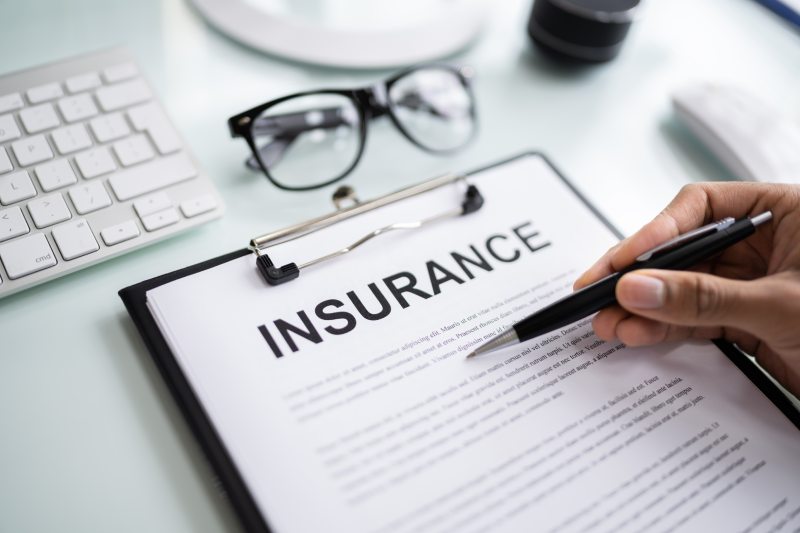
For the majority of Americans, a home is going to be the single biggest expense they’re likely to incur in their lifetime. In the state of Texas alone, the average home value stood at $298,624 as of February 2024. For McAllen, that figure stood at $219,666—lower but still significant.
So, when the investment is high, why not insure it with a suitable home insurance policy? Think of home insurance as a safety net for your biggest asset. In this article, we will explain everything homeowners should know about home insurance in McAllen.

Why Do You Need Insurance Coverage in McAllen, Texas?
McAllen is known for its Texan sunshine and brightly colored birds. But it’s also prone to tropical breezes and natural calamities.
The state of Texas sees roughly 30 to 60 thunderstorms every year. The National Weather Service predicts severe weather (hail, wind, and flooding) to peak in April and May of 2024 for the Lower Rio Grande Valley area. This time of the year always sees some level of thunderstorms or floods, which cause significant damage to buildings and public infrastructure.
It’s necessary to keep yourself safe in such events. Equally important is reducing financial liabilities by opting for comprehensive insurance coverage.
Insurance Isn’t Required by Law in Texas
While Texas doesn’t mandate home insurance as it does auto insurance, lenders often require it. If you’re securing a mortgage in McAllen or surrounding areas like Laredo or Brownsville, anticipate the need for home insurance as part of your financial planning.
Unlike auto insurance, which is mandatory for drivers in Texas, no state law mandates homeowners to carry home insurance. However, while it’s not a legal requirement, many mortgage lenders will require borrowers to purchase home insurance as a condition of the loan.
Lenders would want to protect their investments, and home insurance provides financial protection for both the homeowner and the lender in the event of damage to the property.
In most cases, lenders will require homeowners to maintain a minimum level of coverage throughout the duration of the mortgage loan.
So, if you’re looking for a mortgage, it’s better to get insurance coverage.

Understanding Home Insurance Policy
The first step to getting home insurance coverage is to have a good understanding of the policy.
There are pages and pages of written information in any insurance policy. Thus, knowing all the details may seem intimidating. But to get started, you need to know two things: the home insurance type and coverage.
There are several different types of homeowner insurance policies, each offering varying levels of coverage. The type affects the premiums and total coverage cost.
Home Insurance Types in McAllen
The four common types available in McAllen, Texas, are:
- HO-1 Policy (Basic Form): This insurance is the most basic form of homeowner’s coverage, providing protection for the structure of the home against a limited number of specified perils, such as fire and lightning. Personal belongings are typically not covered under this policy.
- HO-2 Policy (Broad Form): This policy provides coverage for your home’s structure against specific risks outlined in the policy, typically including common threats such as fire, theft, vandalism, and certain natural disasters. Personal belongings are covered based on specific named perils.
- HO-3 Policy (Special Form): This is the most popular type of homeowner insurance policy and provides broad coverage for your home’s structure against all perils except those specifically excluded in the policy. It also covers personal belongings on a named perils basis and includes liability protection.
- HO-5 Policy (Comprehensive Form): This policy goes beyond HO-3, providing comprehensive coverage for both your home’s structure and personal belongings on an open-perils basis. This means it protects against all risks unless they are specifically excluded.
There’s also HO-4, which is known as Renter’s insurance, and HO-6, known as Condominium insurance. They’re self-explanatory and suited for the specific cases. So unless you own a condominium in McAllen, it’s perhaps not suitable for you.
These options apply whether you’re looking for homeowners insurance in McAllen or exploring home insurance options in Laredo or Brownsville.

Home Insurance Coverage Options in McAllen
Here’s a list of things that can typically be covered under a homeowner insurance policy in Texas:
- Dwelling – At the bare minimum, you’d want to protect the very foundation or structure. Therefore, dwelling coverage is a must. It covers everything from the foundation to the frame to the roof. Dwelling coverage may also extend to other structures on your property, such as garages, sheds, fences, and swimming pools.
- Personal property coverage – Imagine a flash flood sweeping through your property, damaging your furniture and electronics. Home insurance comes to the rescue! This coverage protects your precious belongings, from furniture and appliances to clothes and electronics, in case of covered events like theft, fire, or weather-related damage.
- Liability coverage – Financial protection in case someone is injured on your property or if you or a family member accidentally cause damage to someone else’s property. This is particularly important if you host gatherings, barbecues, or recreational activities on their property and invite guests. It helps cover medical expenses and legal fees if someone sues you due to an accident on your property.
- Additional Living Expenses (ALE) – This is the coverage for temporary living expenses if your home becomes uninhabitable due to a covered loss, such as reimbursement for hotel stays or rental accommodations while your home is being repaired or rebuilt.
Residents in McAllen, Laredo, and Brownsville should consider additional coverage for region-specific risks such as hail and flooding.
Besides the ones mentioned above, you have the option to seek further coverage. This includes hail coverage for damages caused due to hailstorms or drain coverage that reimburses for damages caused due to overflowing drains or sewers.
Thus, you need to look into the two factors to decide on the insurance policy for your home.
Insurance Needs Evolve Over Time
The world around us is constantly changing, and the needs for protection evolve right along with it. Insurance, as a safeguard against unforeseen risks, is no exception.
Homeowners insurance, specifically, needs to adapt to keep pace with these changes and ensure it continues to provide comprehensive protection for our homes.
For example, increased frequency and intensity of storms, floods, and wildfires necessitate adjustments in coverage and potentially require additional riders for risks in areas previously considered low-risk.
Also, at times, policies become more customizable, allowing homeowners to tailor coverage to their specific needs and risk profiles. For instance, discounts might be offered for installing flood-mitigation features or opting for sustainable building materials.
So, when there’s a change in lifestyle or environment, it’s a good idea to reflect that on your insurance policy.
Select the Right Broker to Work With
An experienced broker can guide you to the best policy for your needs. They understand the nuances of the local market, whether you’re in McAllen or seeking home insurance in Brownsville.
You need to select the right policy. For that, you need to work with the right broker first. In fact, zeroing in on the right broker is half the job done.
The right broker can assess your specific needs and risk profile to recommend policies that offer the most appropriate coverage at a competitive price.
Learn About Claims Processing and Customer Service in RGV
Lastly, you should know a thing or two about claiming the insurance and the customer service offered in your locality.
When it comes time to file a claim, having a broker in your corner can be invaluable. They can advocate on your behalf, negotiate with the insurance company, and ensure you receive a fair settlement. This is better and safer than filing the claim yourself.
But if you want to go solo, ensure there’s reliable customer service in your region. The settlement process can take multiple rounds of talks, inquiries, and site visits. A reliable service ensures you get served sooner rather than later.
If you’re looking for home insurance in McAllen, why not receive a free quote?

































